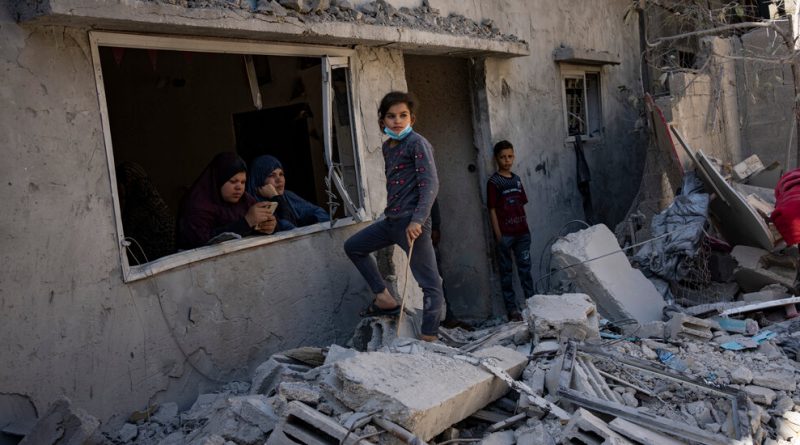Middle East Crisis: U.S., Aid Groups Cautiously Welcome Promise of New Routes Into Gaza

Israel has agreed to open another crossing and increase the flow of aid getting into Gaza, a move seemingly aimed at tempering the U.S. president’s growing frustration over the dire humanitarian crisis in the enclave.
The Israeli government confirmed the new measures in an overnight statement, after the Biden administration announced them late Thursday after a tense phone call between President Biden and Prime Minister Benjamin Netanyahu. During the call, Mr. Biden threatened to condition future support for Israel on how it addresses his concerns about civilian casualties and the humanitarian situation in Gaza.
In a statement, a spokeswoman for the National Security Council said that Israel had agreed to open the Erez crossing to allow aid into northern Gaza, to use the port of Ashdod to direct aid into the enclave and to significantly increase deliveries from Jordan — “at the president’s request.”
“These steps,” the spokeswoman, Adrienne Watson, said, “must now be fully and rapidly implemented.”
The Israeli government did not say when it would open Erez crossing, a checkpoint between Israel and northern Gaza that Hamas attacked on Oct. 7 and that Israel had refused to re-open since. It said only that Israel would allow the “temporary delivery” of aid through the Erez crossing and the port of Ashdod, which sits about 16 miles north of Gaza on Israel’s Mediterranean coast.
Israel has come under rising pressure from U.S. officials and humanitarian agencies to open more border crossings for aid amid warnings from the United Nations that famine looms after nearly six months of war.
Mr. Biden has grown increasingly critical of Israel’s approach to the war against Hamas in Gaza, saying that more must be done to protect civilians. The killing of seven aid workers this week by Israeli forces appeared to bring that to a head, with Mr. Biden saying he was “outraged” and that Israel has “not done enough to protect civilians.”
That frustration carried over into his call with Mr. Netanyahu on Thursday, when Mr. Biden tried for the first time to leverage American aid to influence the conduct of the war against Hamas — prompting Israel to commit to letting more food and supplies into Gaza.
“As the president said today on the call, U.S. policy with respect to Gaza will be determined by our assessment of Israel’s immediate action on these and other steps, including steps to protect innocent civilians and the safety of aid workers,” Ms. Watson said in the statement.
The most dire shortages are in northern Gaza, where desperation has prompted people to swarm trucks carrying assistance and where aid groups say they have struggled to deliver supplies because of Israeli restrictions and widespread lawlessness.
Nearly all of the aid allowed into Gaza since the war began has entered through two main crossing points: Kerem Shalom and Rafah, which are both in the southern part of the enclave. But getting truck convoys from the southern border crossings to the north is difficult and dangerous, and the route is sometimes blocked by roads damaged by Israeli bombardment, Israeli checkpoints or battles between Hamas fighters and Israeli troops.
Defense Secretary Lloyd J. Austin III, in a call with his Israeli counterpart on Wednesday, also “raised the need for the rapid increase of aid coming through all crossings in the coming days,” according to the Pentagon.
Late last month, the International Court of Justice in The Hague ordered Israel to ensure the “provision of unhindered aid” into Gaza, using some of its strongest language yet. Israel has rejected accusations that it is responsible for delays in the delivery of aid.
Patrick Kingsley contributed reporting.
Source – NY Times




